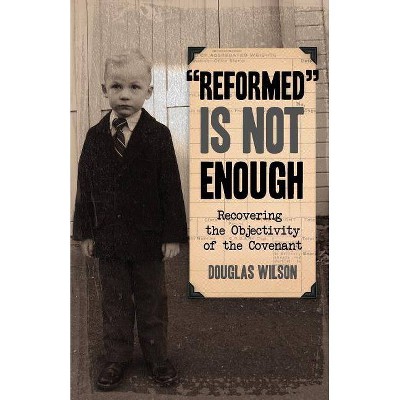When Work Is Not Enough - by Robert P Stoker & Laura A Wilson (Paperback)

Similar Products
Products of same category from the store
AllProduct info
<p/><br></br><p><b> About the Book </b></p></br></br><p>Efforts to promote work have been the centerpiece of welfare reform over the past ten years. In signing the Personal Responsibility and Work Opportunity Reconciliation Act of 1996, President Bill Clinton pledged that the sweeping overhaul would end welfare as we know it by promoting work, responsibility, and family. To accomplish these goals, policymakers relied on two sets of tools: strict limits on eligibility for traditional benefits and a set of programs designed to make work pay. When Work Is Not Enough presents the first comprehensive analysis of the work support system. Drawing on both state and national data, Robert Stoker and Laura Wilson evaluate a broad range of policies that provide cash or in-kind benefits to low-wage workers, low-income working families, and families moving from welfare to work. These programs include minimum wage rates, Earned Income Tax Credit programs, medical assistance programs, food programs, Temporary Assistance for Needy Families earned income disregards, childcare grants, and rental assistance. Stoker and Wilson break new ground by examining the adequacy and coverage of the work support system in all fifty states and the District of Columbia. They address the prospects for reforming the system, as well as its impact on the politics of redistribution in the United States. Rich in analysis, Wh <i>en Work Is Not Enough w</i>ill be essential reading for anyone interested in the impact and future of welfare reform.</p><p/><br></br><p><b> Book Synopsis </b></p></br></br><p>Efforts to promote work have been the centerpiece of welfare reform over the past ten years. In signing the Personal Responsibility and Work Opportunity Reconciliation Act of 1996, President Bill Clinton pledged that the sweeping overhaul would end welfare as we know it by promoting work, responsibility, and family. To accomplish these goals, policymakers relied on two sets of tools: strict limits on eligibility for traditional benefits and a set of programs designed to make work pay. When Work Is Not Enough presents the first comprehensive analysis of the work support system. Drawing on both state and national data, Robert Stoker and Laura Wilson evaluate a broad range of policies that provide cash or in-kind benefits to low-wage workers, low-income working families, and families moving from welfare to work. These programs include minimum wage rates, Earned Income Tax Credit programs, medical assistance programs, food programs, Temporary Assistance for Needy Families earned income disregards, childcare grants, and rental assistance. Stoker and Wilson break new ground by examining the adequacy and coverage of the work support system in all fifty states and the District of Columbia. They address the prospects for reforming the system, as well as its impact on the politics of redistribution in the United States. Rich in analysis, Wh <i>en Work Is Not Enough w</i>ill be essential reading for anyone interested in the impact and future of welfare reform.</p><p/><br></br><p><b> Review Quotes </b></p></br></br><br><P>"http: //www.bls.gov/opub/mlr/2014/book-review/single-mothers-and-welfare.htm" -- "Future Survey", 4/1/2006<br><br><P><br><br><P>" "When Work is Not Enough" is well-written...I would recommend the book to students of public policy, sociology of work, economics, and social-service administration." --Okori A. Uneke, "International Social Science Review", 12/1/2006<br><br><P>" "When Work Is Not Enough" provides useful descriptive information on the design of work support programs and the extent of their benefits. The book emphasizes the point that these programs have the potential to help pull many needy workers and their families above the poverty line." -- "Industrial and Labor Relations Review"<br><br><P>"Careful, thorough examination of America's 'work support system'." --Markley Roberts, "Perspectives on Political Science"<br><br><P>"In this informative book, Stoker and Wilson examine the relationship between welfare and work in the United States in considerable detail." -- "Journal of Sociology and Social Welfare", 9/1/2007<br><br><P>"Robert Stoker and Laura Wilson's important book assesses the extent to which federal and state policies are effective in filling the gaps workers experience when "work is not enough..".. this book will serve as a useful resource for labor educators, students, and professionals, especially those who engage with low-income workers. Through their research and analysis, Stoker and Wilson have made an important contribution to understanding the possibilities and limits of programs designed to "make work pay."" -- "Labor Studies Journal"<br><p/><br></br><p><b> About the Author </b></p></br></br><P>Robert P. Stoker is associate professor of political science and public policy at George Washington University. Laura A. Wilson is the executive director and division chair in the School of Public Affairs and a research associate at the Schaefer Center for Public Policy at the University of Baltimore.
Price History
Price Archive shows prices from various stores, lets you see history and find the cheapest. There is no actual sale on the website. For all support, inquiry and suggestion messages communication@pricearchive.us




















